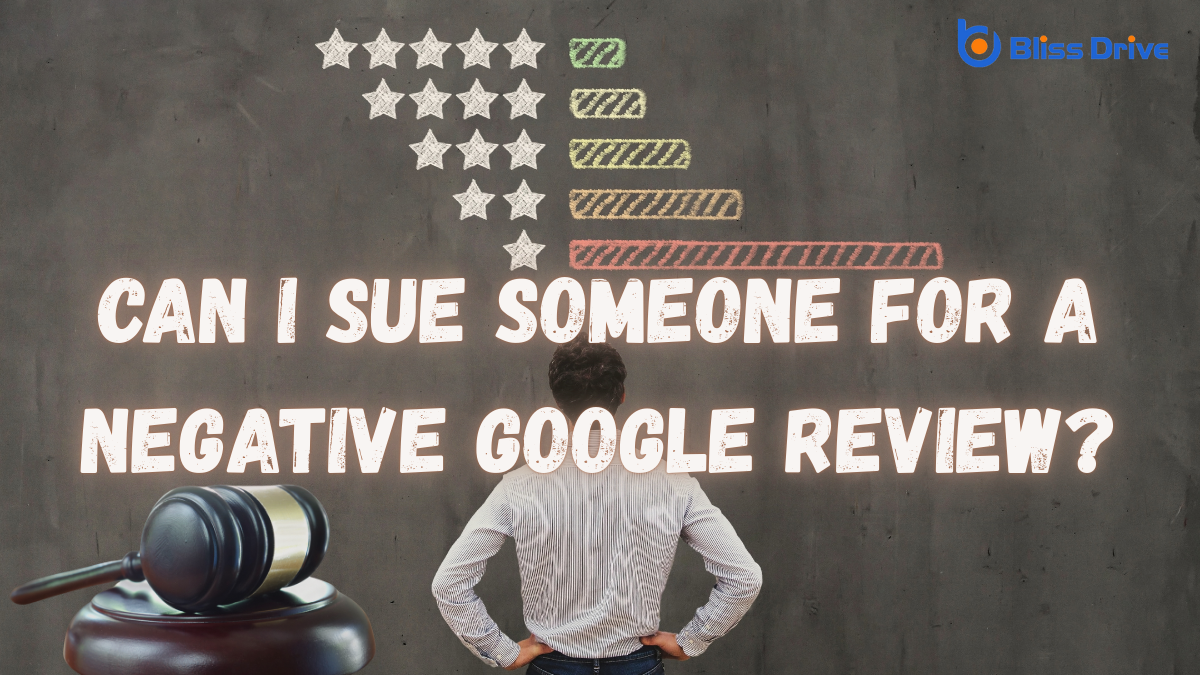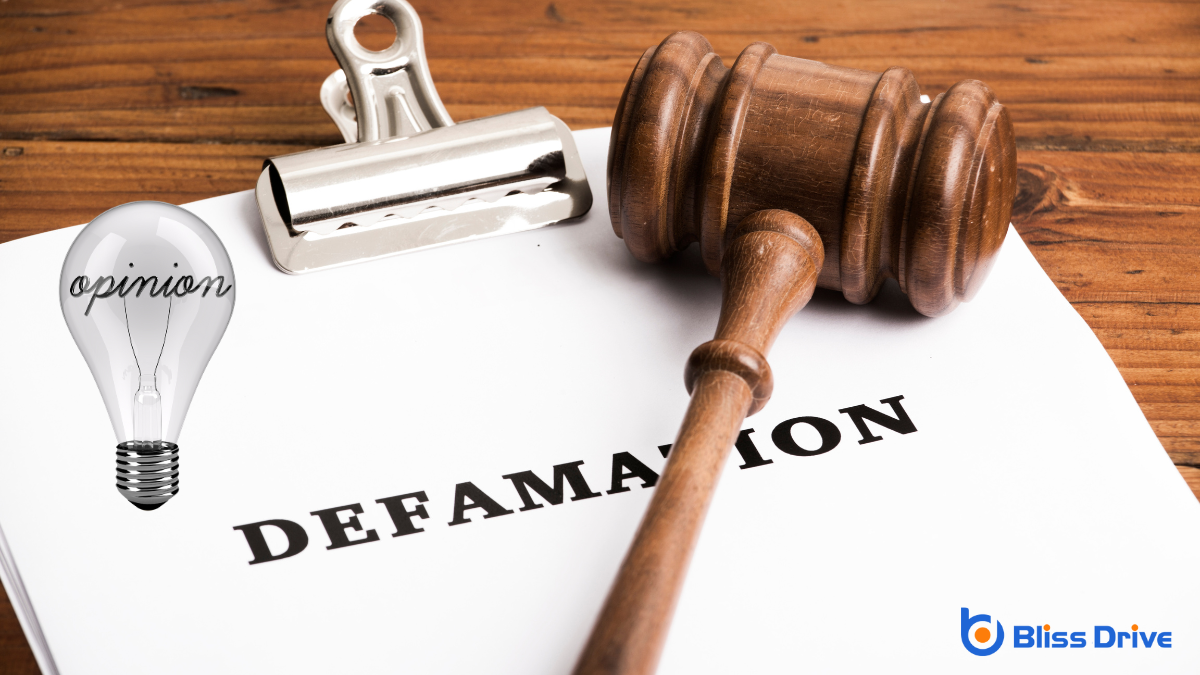Learn More About Us

I’ve often wondered, can I actually sue someone for posting a negative Google review about my business? It might sound straightforward, but it’s really not. The key lies in understanding what defamation truly means and distinguishing it from mere opinion. Before rushing into legal action, there are important nuances and potential consequences to weigh. Curious about what those might be and how they could impact your next steps? Let's explore this complex terrain together.
Defamation can be a complex topic, but understanding it's essential if you're considering legal action over a negative review.
When we talk about defamation, we're dealing with a false statement presented as a fact that harms someone's reputation. For a review to be defamatory, it must be false, damaging, and not based on opinion.
I know it can be frustrating to see a negative review online, but the legal definition of defamation requires more than just hurt feelings or damaged pride.
It's important to gather evidence showing the review's falsehood and its impact on your reputation or business. This understanding helps you determine if legal action is appropriate and guarantees you don’t waste time or resources on a case without merit.

When determining whether a negative review crosses the line into defamation, it's crucial to distinguish between an opinion and a false statement of fact.
I know it can be tricky, but here's a simple way to think about it. Opinions are subjective and can't be proven true or false, like saying, "I didn't enjoy the food."
On the other hand, a false statement of fact claims something that can be objectively disproven, like stating a restaurant has health code violations when it doesn't. That could harm a business's reputation unfairly.
If you're dealing with a negative review, ask yourself if it's expressing a personal view or asserting a false fact. This distinction is critical before considering any further steps.
Before jumping into legal action over a negative Google review, it's important to take a few preliminary steps to address the situation more effectively.
This approach can help you resolve the issue without escalating it further. Here’s what you can do:
Taking these steps can often leadA potential customer referred by an affiliate who has shown interest in the product or service but h... to a resolution without legal intervention.
When you encounter a false or misleading review, start by flagging it as inappropriate on Google.
It’s essential to provide solid evidence to support your claim, which will make Google's review process more effective.
I'll also share how you can monitor the status of your report to guarantee it gets the attention it deserves.
Although negative reviews can be frustrating, you have options to address false or misleading information on Google. Flagging inappropriate content is straightforward.
If you believe a review is false or violates Google's policies, follow these steps:
If you're dealing with a false or misleading review, providing solid evidence to Google can greatly bolster your case.
First, gather any documentation or proof that disputes the review's claims. This might include emails, receipts, or timestamps showing discrepancies.
Clearly outline how the review violates Google's policies, such as misleading content or conflicts of interest.
When you're ready, navigate to the review in question and use the “Flag as inappropriate” option. Here, you'll have the chance to explain your evidence.
Be concise and factual. Remember, you're aiming to show Google why this review shouldn’t be on their platform.
It’s essential to present a strong, clear case—Google's support team needs factual, organized information to take action effectively on your report.
Steering through the review process on Google requires vigilance and patience.
When you suspect a review is false or misleading, taking the right steps can make a difference. Let me guide you through this process:
Stay diligent, and you'll navigate this smoothly.

When faced with a negative Google review that you believe crosses the line into defamation, it's important to know your legal options.
First, understand that defamation involves false statements harming your reputation. If you’re sure the review is defamatory, gather evidence like screenshots and documents supporting your claim.
Next, consider sending a cease and desist letter to the reviewer, demanding they remove the false content. Sometimes, a formal letter is enough to resolve the issue.
If the review remains, consult an attorney specializing in defamation cases. They can help you determine if you have a strong case for a lawsuit.
Before rushing into a lawsuit over a negative Google review, I need to weigh the legal costs and the potential impact on my reputation.
I also want to contemplate if alternative dispute resolution might offer a less confrontational path.
Together, these factors will help me decide if a lawsuit is the best course of action.
Although taking legal action against a negative Google review might seem like a straightforward solution, it’s vital to evaluate the financial implications of a lawsuit.
I understand that the decision to proceed legally isn't just about righting a wrong; it's also about managing costs. Here’s a quick breakdown of potential expenses you’ll face:
Balancing these costs against potential benefits is essential.
Considering the financial aspects of a lawsuit is important, but it's equally essential to think about how it might affect your reputation.
Pursuing legal action over a negative Google review can be a double-edged sword. On one hand, you might feel justified in defending your business, especially if the review is false or damaging. However, suing could also portray you as litigious or unwilling to accept criticism, which might deter potential customers.
Moreover, lawsuits often become public, meaning the negative review—and your response—could gain more visibility.
It’s imperative to weigh if the potential benefits outweigh the risks. A lawsuit might resolve the issue, but it could also cast a long shadow on your brand’s image.
Reflecting on these implications is essential before proceeding.
When facing a negative Google review, turning to Alternative Dispute Resolution (ADR) can be a strategic move that offers a less confrontational path than a lawsuit.
Let's weigh the pros and cons to help you understand this approach better.
Considering ADR can be a wise step to addressing negative reviews without the stress of a courtroom battle.
Even if a negative Google review feels like a personal attack, it’s essential to remain calm and approach the situation strategically.
First, I focus on understanding the feedback. Is there any truth to it? If so, addressing the issue head-on can turn a dissatisfied customer into an advocate.
I always respond promptly and professionally, showing empathy and willingness to resolve the matter. This illustrates commitment and openness to potential customers.
Additionally, I actively encourage satisfied clients to leave positive reviews, which can balance out the negative ones.
Monitoring my online presence regularly helps me stay informed and proactive.
Finally, I invest time in creating quality content that highlights my strengths, portraying my business in the best possible light.
In summary, while you can sue someone for a negative Google review, it's essential to distinguish between opinions and defamatory statements. Before jumping into legal action, consider responding professionally or reporting the review to Google. Weigh the pros and cons carefully; lawsuits can harm your business image. Explore all options, including Alternative Dispute Resolution, to manage your online reputation effectively. Always aim for a balanced approach to protect your brand and maintain customer trust.
